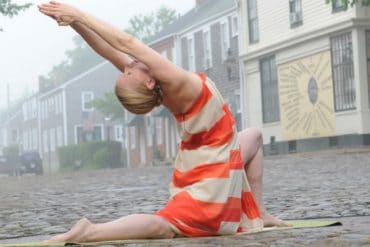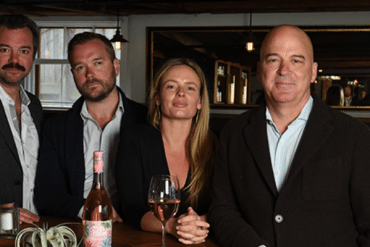Massachusetts General Hospital president Dr. Peter Slavin diagnoses the current state of the coronavirus in Massachusetts.
Dr. Peter Slavin has become a national voice regarding COVID-19, having appeared regularly on a variety of network news outlets. As president of Mass General Hospital, Dr. Slavin is in a unique position to provide commentary on the progression of the coronavirus and shared his latest thoughts on the disease with N Magazine during a discussion at the end of April.
 N MAGAZINE: Nantucket has been largely spared of the virus, but the summer is upon us and the island’s population will swell. What do you foresee for a native population that has largely sidestepped COVID-19 when people from all over the country arrive?
N MAGAZINE: Nantucket has been largely spared of the virus, but the summer is upon us and the island’s population will swell. What do you foresee for a native population that has largely sidestepped COVID-19 when people from all over the country arrive?
SLAVIN: Nantucket is a special, unusual situation relative to the rest of the country. It has a terrific new hospital, but a hospital that still doesn’t have the capacity to care for large numbers of COVID-19 patients, particularly the ones that are very sick and require ventilators. So if an outbreak of significance occurred on Nantucket, not only could it potentially overwhelm the hospital, but it would require lots of patients to be transferred off the island—and how easy or difficult that would be I guess depends on what’s happening on the mainland at the time. So Nantucket, although as you said has been relatively spared by this disease, is a potentially vulnerable place, if the disease were really to take off. Gary Shaw, the head of the hospital, has been making these points laying out the risk that exists. Ultimately, it’s up to the leadership of the town to determine what it wants to do in light of those risks. The decisions that are made on the island about how to manage COVID-19 and prevent an outbreak just need to take what healthcare capabilities exist on the island into significant account.
N MAGAZINE: Massachusetts’ infection numbers seem stubbornly high. Are you surprised by that?
SLAVIN: There are two aspects of your question. One is that Massachusetts has more cases than you might expect based on our population, which is probably due to a couple of reasons. We think the BioGen conference spread this pretty heavily in the community. We also are an international destination and have people from Asia and Europe coming here. Because of those things, I don’t think it’s a big surprise that our cases are on the high side. And in addition to that, we’ve done more testing than a lot of other states on a per capita basis, so we’re finding more cases than they are. In terms of how rapidly the number of cases of hospital admissions are coming down, this is not unusual. I mean, sometimes pandemics or epidemics like this will fall off very quickly, but there are also models that show that they fall off much more gradually. I think we are sort of at or slightly beyond the peak of this wave here in the state of Massachusetts, but that the numbers are coming down gradually and will probably continue to come down gradually over the coming weeks.
 N MAGAZINE: What is your position right now as to when we would be ready to open up?
N MAGAZINE: What is your position right now as to when we would be ready to open up?
SLAVIN: Part of the answer to the question is how much risk are you willing to take? Clearly if all you cared about was preventing COVID-19 infections and COVID-19 deaths, then you would keep everybody locked down until a vaccine was available in eighteen months or hopefully sooner. That obviously is not possible; our economy would implode. The social, political and health care unrest that that would cause is unfathomable, so we can’t do that. So, the question is how much risk are you willing to take for the sake of maintaining our society in some fashion? I think the countries that have waited until the number of cases in the community spread is relatively small have tended to do better. We need to wait for our curve to get substantially lower than it is now.
And then there is a series of complicated questions about what do you do with reopening. What industries reopen? What people are allowed to reengage in their activities? Younger people, people without medical comorbidities? What kind of personal protective equipment (PPE) do you use in all these different settings? What kind of physical distancing do you use? So there are countless issues to be sorted out and I’m glad the governor has created a committee and advisory board to advise him on the subject. Our head of infectious diseases is one of the people serving on that group.
N MAGAZINE: What are your thoughts on colleges opening?
SLAVIN: It does seem iffy. We’ll know more in the next month or two that can inform those decisions, but having lots of kids together in college dorms and classrooms shouldn’t happen right now. Whether it will make sense come the early fall, I just don’t know.
N MAGAZINE: What good has come out of this crisis?
SLAVIN: There are a number of silver linings in this pandemic. The use of online learning as a whole field has been advanced dramatically. Similarly, in medicine, the use of telemedicine has been advanced dramatically. Prior to this pandemic, less than 1 percent of our outpatient visits were happening via telemedicine. As we sit here today, 83 percent of our outpatient visits are being delivered virtually over the internet. And patients love it, doctors love it. It’s more convenient, doesn’t require commuting into Boston, and doesn’t require us to use PPE. When this is over, that 83 percent is certainly not going to return to 1 percent. Telemedicine is here to stay.
 N MAGAZINE: From what I understand, Mass General is still not doing elective surgeries. What do hospitals do now with all of this extra medical capacity?
N MAGAZINE: From what I understand, Mass General is still not doing elective surgeries. What do hospitals do now with all of this extra medical capacity?
SLAVIN: A significant amount of it has been redeployed. It was written up in The Boston Globe that our chief of orthopedics has been serving as a scribe in one of our respiratory infection clinics that sees and screens COVID-19 patients. As I round the various wards where COVID-19 patients are cared for, we have neurologists, radiologists and people who do outpatient medicine helping out on the inpatient units under the supervision of people who do inpatient medical care full-time. And that’s also true for nursing staff as well. Although we’ve been very busy with COVID-19, we continue to see other medical emergencies; we do emergency surgery, so there is a fair amount of other clinical activity going on within the hospital that physicians in those areas are performing as well.
N MAGAZINE: There’s already talk of a second wave when the first wave hasn’t even finished yet. What is your take on this notion that there will be a second wave?
SLAVIN: COVID-19 is a clinical condition that people are experiencing, yet the name of the virus is called SARS-CoV-2. That virus is very infectious and also quite deadly. It’s probably at least ten times more deadly than the influenza that we experience. It’s not as deadly as SARS or MERS, but it’s a pretty nasty virus. Now, there are obviously large numbers of cases that have been documented in this country. The numbers in the country are over a million, and the numbers here in Massachusetts are forty thousand, if I recall correctly. Those numbers sound very big, but if you look at them as a percentage of the population, nationally it’s about 0.3 percent. Now, we know that those numbers are an underestimate because there are a lot of people who have never had symptoms with the disease who have had it, and there are people who have had symptoms that never got tested who have had it. So how many people at this point have been infected is significantly higher than 0.3 percent. The highest estimate we’ve seen in any population is in Chelsea where we’ve been doing some testing work—it’s probably about 30 percent.
To achieve herd immunity— which is basically what’s necessary for the virus to slow down in transmission to really decrease dramatically—you need to get to about 60 percent or 70 percent. There are two ways to get there: One is through a vaccine, which would be the most desirable way. The other way is for people to get infected, which is obviously less desirable. So until a vaccine arrives, we just need to make sure that the number of people infected at any given point in time does not overwhelm the health care system. We need to particularly protect older people and people with comorbid conditions who are particularly vulnerable to the ravages of this virus.
If you look at all the deaths in Massachusetts, only 5 percent of them have come from people fifty-nine years of age or younger. Ninety-five percent of the deaths have occurred in people sixty and older, so we just need to be particularly careful about exposing older folks to the disease.
This is a long-winded way of saying I think COVID-19 is going to be around for a while. Once we’ re over this wave, we need to not do anything that allows another wave of even greater magnitude to develop, because there are certainly enough unexposed people in the population for that to be possible. We just need to stay on top of it, do contact tracing and a whole bunch of other things to prevent that disastrous situation from unfolding—as if what we’ve been through isn’t disastrous enough.
 N MAGAZINE: Is COVID-19 likely to become a part of our lives?
N MAGAZINE: Is COVID-19 likely to become a part of our lives?
SLAVIN: I think COVID-19 is going to be around for the foreseeable future. Whether that is up to a year from now, I just don’t know. I think we are certainly looking at it being around probably through the end of this calendar year. If we’re careful, hopefully we won’t experience anything like we’ve been through in recent months.
N MAGAZINE: Healthcare workers have become the real heroes here. What can you say about their performance?
SLAVIN: What’s unusual about this situation is that we’re used to responding to disasters or crises like the Boston Marathon bombing or the Station nightclub fire. In this particular crisis, our staff is applying clinical expertise as it has in the past, but the fear that is in the minds of our healthcare staff is about what impact this is going to have on them. Are they going to contract the disease? Are they going to spread it to their family? That adds a dimension to this that is challenging for them. It’s the same challenge that people who are in the military face on a regular basis. Certainly during my lifetime, healthcare workers have generally never faced these kinds of clinical situations where their own welfare is so starkly on the line. It’s a defining moment in our lifetimes. Hopefully, we’ll be proud of how we handled it.








